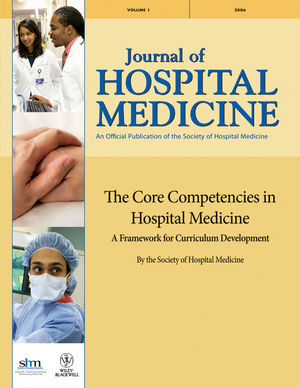The Core Competencies in Hospital Medicine: A Framework for Curriculum Development by the Society of Hospital MedicineISBN: 978-0-470-93147-9
Paperback
140 pages
August 2010, Wiley-Blackwell
 This is a Print-on-Demand title. It will be printed specifically to fill your order. Please allow an additional 10-15 days delivery time. The book is not returnable.
|
||||||
Within each section, individual chapters on focused topics provide competencies in three domains of educational outcomes: the Cognitive Domain (Knowledge), the Psychomotor Domain (Skills), and the Affective Domain (Attitudes). To reflect the emphasis of hospital medicine practice on improving healthcare systems, a fourth section entitled Systems Organization and Improvement is also included. An attempt has been made to make the objectives timeless, allowing for creation of curriculum that can be nimble and reactive to new discoveries.
Although the entire document can be a resource for comprehensive program development, each chapter is intended to stand-alone and thus support curriculum development specific to the needs of individual programs.



